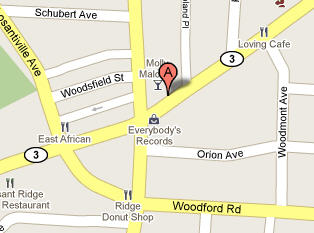Home > Meetings
A.R.T. Meetings
Association for Rational Thought Meetings are free, open to the public, and held the second Saturday of each month, September through June, 10:00 AM to 12:00 PM. The meetings will be held at Molly Malone's (formerly The Dubliner) in Pleasant Ridge. This is in Pleasant Ridge near the intersection of Ridge Ave. & Montgomery Road. At this point, Ridge is running nearly due north-south. The restaurant is about 3 doors east of the intersection, on the north side of the street.
6111 Montgomery Road
Cincinnati, OH 45213
(513) 531-0700

Click on map
6/23/2012 ART Picnic at Susan and Bernie's
The picnic on June 23th at Susan and Bernie's will
be a potluck, so if you are a member who wishes to list the items you
are bringing, please do so in the comments on the
Blog.
This way we should be able to eliminate duplication. remember to check
previous comments to see what others are bringing.
The address and directions will be on the mailer card and in the Email.
Please let us know if you are going to be there,
and how many will be with you.
513-575-9091
just leave a message if no one is home. Call if you get lost on the way.
6/9/2012 Annual
Field Trip:
“
Saturday, June 9, 10:30 AM tour (arrive 30 minutes
early)
$20, Please pay in Cash. Bring your camera, wear your
walking shoes
Tour Starts at Cincy Haus,
http://americanlegacytours.com
5/12/2012 Owen Findsen
"King George Commands and We Obey"
Schemes, Plots, and Scoundrels : The Hidden History of the American Revolution
Owen Findsen, Author, Writer and Historian
4/14/2012 John Martin, Ph.D.
"The Logic of Mysticism"
John Martin, Ph.D. University of Cincinnati, Department of Philosophy
3/10/2012 Levi Morran
"Why sex is better with a partner: Lessons learned from the sex life of worms"
There is a lot of sex in nature. In fact, sex is the most common form of reproduction among plants and animals. Interestingly, this widespread prevalence of sex is contrary to the predictions of evolutionary theory. Sex is costly relative to other forms of reproduction because it reduces the genetic contribution each parent makes to an offspring and it may require males that consume resources but do not directly bear offspring. It seems that other mating systems would be far less costly and far more efficient than sex, but yet sex is everywhere. Explaining the evolution and maintenance of sex is one of the major problems in evolutionary biology. My team and I conduct evolution experiments in the laboratory with the microscopic worm, Caenorhabditis elegans, to test evolutionary theory and explain why we see so much sex in nature.
Levi
Morran:
I am an evolutionary biologist and a National Institutes of Health
postdoctoral fellow in the Biology Dept. at
2/11/2012 Randy Weaver
"James Bradley and the Abolitionist Movement's Origins"
Randy Weaver will do a reading in honor of Black History Month.
Discussion will follow.
1/14/2012 ART Members
"Ten Minute Free-for-all"
12/10/2011 Brad Bonham
"Emerald Ash Borer Myth-Busting
Asian longhorn beetle (ALB) is another invasive wood-boring beetle which
just appeared on the local horizon. While far more cosmopolitan in its
feeding habits, this pest is equally deadly. Management is
entirely different and is
based on Federally-run eradication efforts. There may be some consumer
protection issues to address with this pest. Brad will provide the
latest info on this infestation.
11/12/2011 Bruce Levine
"Get Up, Stand Up: Uniting Populists, Energizing the Defeated, and Battling the Corporate Elite"
Polls show that the majority
of Americans oppose current
Bruce E. Levine,
a practicing clinical psychologist often at odds with the mainstream of
his profession, writes and speaks about how society, culture, politics
and psychology intersect. His latest book is
Get Up, Stand Up:
Uniting Populists, Energizing the Defeated, and Battling the Corporate
Elite
(2011). Earlier books include
Surviving America’s Depression Epidemic
(2007) and
Commonsense Rebellion
(2003). He is a regular
contributor to the
CounterPunch,
AlterNet, Truthout
and
Z
Magazine..
10/8/2011 Dr. Kirk Little
"Neural Plasticity in the Ageing Brain:
Understanding Executive Functioning and how to stay 'sharp' as we get
older"
Cognitive abilities such as learning, memory, and executive functions
show considerable age-related decline. These abilities rely heavily on
the functioning of the medial temporal lobe and the prefrontal cortex,
two areas of the brain that are particularly vulnerable during the
ageing process. Dr. Little will talk about the lifespan development of
"executive functions" and how these functions can be impacted by
traumatic brian injury, attention deficit disorder, epilepsy, and
ageing. He will also discuss strategies for assessing and rehabilitating
the executive functions via our most advanced brain-computer interface
devices.
Dr. Kirk Little is a clinical psychologist licensed in
9/10/2011 Jon Entine
"Better safe than sorry? The downside of risk
aversion"
Should "Better safe than sorry" drive science
regulation, particularly genetics (human and agricultural) and
chemicals, whose impact is widely misunderstood?
If we don't take appropriate precautions, we will be dogged by the
specter and uncertain risks; but if we take too many, we will
squelch innovation.
Science policy is shaped by risk--not only the fact of it but public
perceptions of what potential harms are acceptable and what are not,
which are often far different from actual risk.
Jon Entine, director of the Genetic Literacy Project at George Mason
University, will examine the perception/reality gap.
Among Jon's books: Crop Chemophobia: Will Precaution Kill the Green
Revolution?,
Scared to Death: How Chemophobia Threatens Public Health;
Let Them Eat Precaution: How Politics is Undermining the Genetic
Revolution in Agriculture;
Abraham's Children: Race, Identity and the DNA of the Chose People;
and Taboo: Why Black Athletes Dominate Sports and Why We're Afraid
to Talk About It.
6/25/2011 ART Picnic at Susan and Bernie's
The picnic on June 25th at Susan and Bernie's will
be a potluck, so if you are a member who wishes to list the items you
are bringing, please do so in the comments on the
Blog. This way we should be able to eliminate duplication. remember
to check previous comments to see what others are bringing.
The address and directions will be on the mailer card and in the Email.
Please let us know if you are going to be there,
and how many will be with you.
513-575-9091
just leave a message if no one is home. Call if you get lost on the way.
|
6/11/2011 The Association for
Rational Thought Field Trip
"Celebration: A Gathering of Four
Directions
Experience one of the
premier Native American-themed educational events in the region! Enjoy
Native flute music and drumming, view up to 100 dancers in full regalia,
participate in workshops, and listen as expert storytellers ply their
trade. Adult $9, Youth $5 Saturday, June 11, 10:00 AM - ? General Membership Business Meeting and Officer
election for next year 10 – 11 AM There will be 2 food vendors at the festival, but you will be allowed to bring your own food, and there is a large shelter house for picnics. 5/14/2011 Jake Mecklenborg "Cincinnati's Incomplete Subway: The Complete History" Author Jake Mecklenborg will discuss the
rise and fall of 4/9/2011 Rolland Workman, PhD, Professor Emeritus, Philosophy, University of Cincinnati "Justice as Balance" An analysis of the concept of justice embedded in the western philosophical tradition. 3/12/2011 Dr. Randy Seeley "How Obesity Goes To Our Heads: Why Can't We Just Eat Less?" Dr. Randy Seeley is Professor of Medicine at the University of Cincinnati College of Medicine & Director of the Cincinnati Diabetes & Obesity Center. His research focuses on the actions of hormones in the brain that regulate food intake, body weight & circulating fuels. He studies hypothalamic & G.I. peptides & their receptors that effect energy intake & peripheral metabolic processes, emphasizing new treatment strategies for obesity & diabetes. 2/12/2011 Linda Newman, UC Librarian "Digitization
of Books and the Almost all academic libraries are involved in large scale efforts to digitize rare books and materials. Some of the largest are working with Google. The ambitious Google Books project has had an interesting, important impact on the availability of online texts. Many books, reports, papers, etc. are now available in a ‘born-digital’ format – no scanning of hard copy required – and we may not be far from a future where not only ephemeral web sites, but important manuscripts, works of fiction, research reports, etc. may never appear in print but only in the digital world. Is there a conflict between Open Access publishing on the web and for-profit web-based publishing? How have these trends to date impacted scholars for the better and occasionally the worse? Will our public and academic research libraries be able to continue to fulfill their missions to acquire and preserve our cultural and scientific record?
Linda Newman holds the
position of Digital Projects Coordinator at the
1/08/2011 ART Members "Ten Minute Free-for-all" 12/11/2010 Roxanne Qualls "Analysis of the Election results" 11/13/2010 Jack Kallmeyer "Dry Dredgers" 10/09/2010 Skip Schulte "The Connection Between Depression and Suicide" For many years I have had a keen personal interest in mental health and mental illness. During the past couple of years I have become increasingly interested in suicide prevention. In early 1982 I was first diagnosed with depression. Later that year I took an overdose of medication, prescribed not for my depression but rather for my tinnitus. For more than 25 years I have spoken about depression and suicide to various groups of people. I am ready, willing, and able to speak about these topics to ANY group - students (high school, college, med school, etc.), educators, mental health and other health professionals (including physicians), social workers, support group members, attorneys, parents, members of civic, fraternal, corporate, athletic, military, governmental, and church groups, etc. An article about my personal experience with depression and suicide appears on page 11 of the January 2009 issue of Streetvibes, a newspaper sold largely by homeless persons on street corners in downtown Cincinnati, OH. Here is a link to that article: 9/11/2010 Chaplain Judith R. Ragsdale, Ph.D. "The use of religion in coping with illness".
Judith Ragsdale will address research done by selected physicians, psychologists, and pastoral care providers on how people use religion/spirituality to help them face illness. The use of faith to help people cope is not confined to any one faith tradition, though most of the research considered here will come from patients and families in the Judeo-Christian traditions.
The speaker is a supervisor certified by the Association for Clinical Pastoral Education; she has served as a chaplain at Cincinnati Children's Hospital since 1995. She is a minister with the United Church of Christ and holds a Ph.D. in Leadership and Change from Antioch University.
|
||||||||||||||||||||||||
|
|
||||||||||||||||||||||||
|
8/14/2010 Picnic at Susan & Bernie's Potluck - 4:00 pm - There is a thread in the
Blog where people can
list what they intend to bring. We hope to have enough chairs, but some extra folding chairs might help |
||||||||||||||||||||||||
|
|
||||||||||||||||||||||||
|
6/12/2010 Fernald Road Trip The Association for Rational Thought Presents- "History of the Fernald Preserve" Nuclear Age Icon becomes a Nature Preserve Saturday, June 12th, 10 AM at the Meeting Room, in the Visitor's Center of the Fernald Preserve at 7400 Willey Road, Hamilton, OH 45013 phone: 648-4899You may bring a dish for pot luck or pack a lunch. Driving directions Google maps More detail New York Times article: http://www.nytimes.com/2006/09/20/us/20park.html? |
 | |||||||||||||||||||||||
5/8/2010 Dr. Bill Jensen "Ambiguous Icons of Skepticism"
UC Professor of the History of Chemistry, Dr. Bill Jensen |
 | |||||||||||||||||||||||
4/10/2010 Wolf Roder "The Supervolcano" A talk on volcanoes, including supervolcanoes at Yellowstone and the Toba eruption 70,000 years ago. |
 | |||||||||||||||||||||||
3/13/2010 Dean Regas "The New Solar System - How Pluto & Other Oddballs Fit In" -OR- Pluto, Don't Be So Rational. |
 | |||||||||||||||||||||||
2/13/2010 Howard Tolley Jr. "Strange Bedmates: Conservative and Liberal Advocates for Judicial Activism" New Deal liberals condemned the conservative activists who invalidated progressive economic regulations, and 21st Century conservatives denounce liberal activist judges for legislating from the bench on abortion, gay rights, criminal procedure, and religious liberty. Progressives on the left and libertarians on the right have recently joined forces in suits asking judges to find unconstitutional overbroad criminal laws, bans on gay marriage, and limits on gun ownership. Are there any principled legal boundaries or legitimate political checks on the abuse of Judicial Review by justices who substitute personal policy preferences for the choices made by popularly elected legislators? | ||||||||||||||||||||||||
| ||||||||||||||||||||||||

